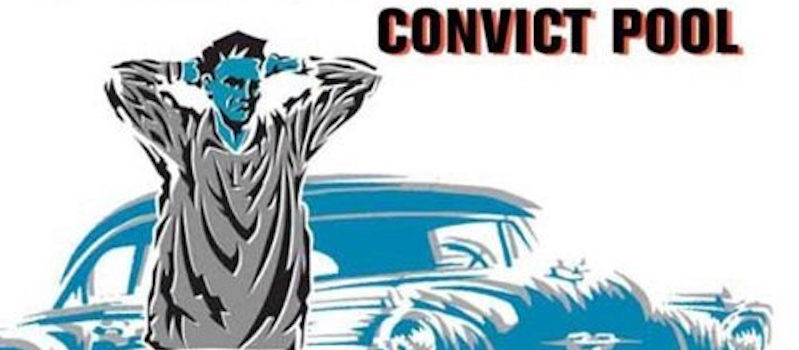Nirvana’s In Utero always has been ripe with context.
Upon release in 1993, it wasn’t just the group’s third full-length record proper; it was arguably a middle-finger to the industry that fanned the flames of Kurt Cobain’s celebrity while positing itself about as accessible a “rock” record as the group was willing to make. Above all, especially as time would have it, it has become a kind of reinforcement of the group’s legacy as one of the finer bands of the era, a way of gesturing to the nonbelievers that Cobain was about more than “Smells Like Teen Spirit.” To recreate the buzz for the record is to trace the trajectory of the massively successful – and massively imitated – Nevermind. In some ways, all these years later, 1991 sounds like the surface of the moon. And, yes, yes, even in 1993, by the time In Utero hit stores, the whole “kick Michael Jackson out of the top Billboard spot” thing was old hat, as Cobain might have known too well — especially if In Utero’s “Serve The Servants” is to be believed, anyway.
Now, 20 years after the fact, the album, one of the most hotly anticipated of its day, has gotten the snazzy anniversary treatment, complete with ultra-suede packaging and lots of asides and B-sides. And, again, we find ourselves fretting over all of the context of the last recording Kurt Cobain and company made before that fateful day in April 1994 when the whole world seemed to stop to listen.
Most of the “super deluxe” three-CD, one-DVD set is familiar terrain to those who will fork over the money to buy it, though those who have strayed from the stream of unofficial recordings might find it more rewarding or revealing in the vein (though not the degree) of the boxed-set With The Lights Out. In other words, it’s much like the Nevermind set that came out two years ago.
The once-controversial Steve Albini mixes (take THAT, Scott Litt!) already have made their rounds again and again on bootlegs, though they are presented lovingly and rightfully here, and B-sides like “Verse Chorus Verse” or the international add-on “Gallons of Rubbing Alcohol Flow Through The Strip” are nothing new, however good they are. The “2013 mix” of the record is punchy and fresh without being too entirely revisionist – but more debate on that later – and boombox-style instrumental demos, a cool find, really remind you of how much Nirvana was gambling on making a more aggressive, angular record than the emotive-but-polished Nevermind. Nice additions include some takes from the group’s last live shows (again, well-worn bootleg ground), rough sketches of songs like Dave Grohl’s “Marigold” (shades of Foo) and the complete Seattle live set, both in audio and video formats, that MTV aired in late ‘93 as “Nirvana: Live and Loud.”
People mining the disc for clues of Cobain’s self-inflicted fate in light of its release will have plenty of material with which to work, though, for all of the frontman’s ruminating on health concerns and growing old, it is sometimes easy to forget we’re listening to a record predominantly written by someone in their mid-20s – and living a rock star’s life in their mid-20s, nonetheless. Cobain didn’t pose as soothsayer or social critic the way icons like Dylan did in their day, but he did a wonderful job at peeling back his own skin and working wonders in the first person, another staple of the folk legend. Someone needs to maintain that, if they were Courtney Love, though, they would have seen the writing on the wall with “All Apologies,” with its highly personal yet matter-of-fact refrain of “Married/buried.” But Cobain also performs with statements writ large, as on his fame-ravaging “Serve The Servants” and “Radio Friendly Unit Shifter,” or on “Rape Me,” where he co-opts the line from his most famous song to invoke one of the most invasive of crimes.
Now, about those 2013 mixes. Albini looks like the clear winner here – proof: he even gets to write the preamble to the liner notes with his lengthy, circa-‘92 fax to the band about recording the album in the first place – as his early take on “Heart-Shaped Box” seems less primmed and preened than the later mixes, and the Litt mix of “Pennyroyal Tea,” another unreleased take, seems like unjustified tinkering. Other tweeks to the “as released” ’93 album are minor and sometimes unnecessary. I can forgive DGC and Universal, et cetera, et cetera, for adding a little guitar noise to the intros of “Scentless Apprentice” and “Very Ape,” or some scrappy cello fingering to “All Apologies” (I was always a big fan of the lighter on the “unofficial”/Touch and Go take on “Oh, The Guilt”) but whose idea was it to remove that weeping cello from “Dumb?”
Though music journalist Michael Azerrad should probably get credit for enshrining Kurt Cobain’s pursuit of icon Corey Rusk, it doesn’t amount to rocket science or brain surgery to figure out Cobain wanted Nirvana on Touch and Go Records and not just for a split single. As a closing thought, I’d love to know what Rusk and company (Christ, even Albini) think of the punch of “Milk It” all these years later, still all piss and vinegar, and whether it would have made pleasant company along with much of The Jesus Lizard’s Down or Shellac’s At Action Park, which share In Utero’s vintage if not its parentage.
All of the ridiculous context and second-guessing aside, that’s what remains.
The conspiracy theorists have Kurt and Courtney to pair with their heavily annotated versions of Bleach. But Kurt Cobain, R.I.P., was once just an angry young man blasting alienation and capturing the angst of a generation in the pounding beats and scathing choruses we now celebrate 20 years hence. Nothing more, nothing less: a great record. Let’s remember him for that instead of the gun. – Popdose, Oct. 23, 2013




